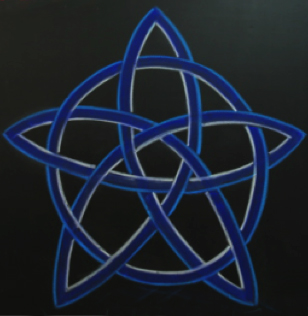Curriculum Overview
The curriculum of Desert Star Community School is based on Rudolf Steiner’s Waldorf education. We believe in educating the whole child and recognize that each child possesses a unique blend of intelligences, i.e.: linguistic, logical-mathematical, musical, spatial, bodily kinesthetic, interpersonal, intrapersonal, naturalist and others. We design a curriculum that leads to a mastery of standards while cultivating and expanding all intelligence areas in a developmentally appropriate context.
Waldorf education provides an exceptional academic education and an enriched humanities curriculum that introduces children to world history and culture through legends, literature, mythology and the creative arts. The arts are integrated into all academic subjects giving students a meaningful, creative, and multi-sensory context for understanding. The academic, “core subjects” are taught by the class teacher during main lesson each morning. Lessons are alive and interesting; they challenge and stimulate both the child's imagination and intellect. The main lesson often begins with a story from the great traditions of classical literature (multicultural fairy tales, Aesop’s fables, Greek Mythology, etc). The curriculum themes for each grade, inspired by Steiner’s developmental indications, are outlined below.
The students’ academic themes and skills are documented by the creation of personal main lesson books and portfolios. As lessons are taught students create illustrated books for each subject, accurately and artistically recording the substance of their lessons. In this way art is integrated into every subject.
The sciences are taught through experiential activities with a reverence for the wonder and beauty of nature. Projects and experiments are approached through inquiry-based approaches that ignite curiosity, sustain interest, and allow children to make their own discoveries as a bridge to understanding scientific concepts.
In grades 1-4 the main lesson begins with a circle time of greetings, thematic songs, verses, games and physical rhythmic exercises designed to develop cognitive and motor integration. Lesson themes may be introduced during this time so that the child has an experiential basis for understanding new concepts. The afternoons provide time for projects and multi-age instruction, physical education, and specialty classes. Music permeates and harmonizes the school life through a curriculum designed to develop the innate musicality within each child. Singing is integrated throughout the day; playing the recorder begins in 1st grade and the violin instruction begins in 4th grade. Handwork and the practical arts are an integral part of the curriculum, teaching coordination, patience and perseverance. Spanish is taught beginning in the 1st grade progressively through the grades along with cultural awareness and appreciation. Daily, weekly and seasonal rhythms, as well as integrated school-wide themes and festivals help to provide a consistent and meaningful structure to the educational process.
It is the school’s philosophy to foster the development of interpersonal and social-emotional intelligence in students. Emphasis is placed on the development of communication skills, empathy, respect for self and others, taking responsibility for one’s actions, conflict resolution, cooperation and collaboration skills. There are also opportunities to develop “intrapersonal” (knowledge of self) intelligence through inner reflection, guided experiences in self-knowledge, emotional awareness and self-esteem enhancement. Teachers model and teach healthy, respectful and compassionate ways of relating and problem solving in the classroom setting.










